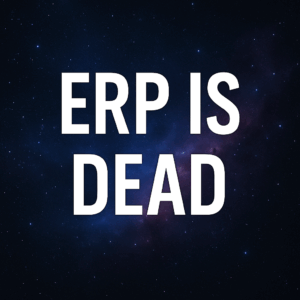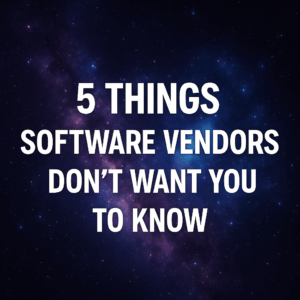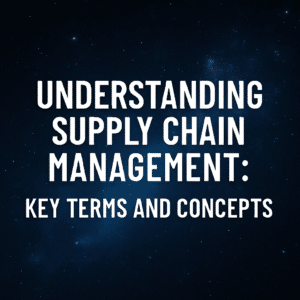Our recently release ranking of top ERP systems for 2019 triggered some interesting discussion and comparisons of leading enterprise software. Microsoft Dynamics 365 and NetSuite were both in our top 5 (#1 and #3, respectively), which leads to an interesting comparison of these two systems.
Table of Contents
ToggleMicrosoft Dynamics 365 and NetSuite are often on ERP shortlists
With all the systems available in the market, there are an infinite number of comparisons of products we could make. But these two products are worth comparing since so many clients we work with tend to narrow the field to these two systems. They tend to appeal to many of the same mid-size organizations that are looking for flexible Software as a Service (SaaS) and cloud solutions.
Microsoft Dynamics 365 vs. NetSuite: Flexibility
The two products are both relatively flexible compared to larger ERP systems. Larger organizations looking for more scale and breadth of ERP functionality typically lean toward an SAP S/4HANA vs. Oracle Cloud comparison. Mid-size companies, on the other hand, are more likely to lean toward Microsoft Dynamics 365 or NetSuite because of their relative flexibility.
Both Microsoft Dynamics 365 and NetSuite are relatively flexible systems. NetSuite is a SaaS system, which means that all companies using the software are getting the same general look and feel (similar to how Gmail looks the same for everyone using it). Basic configurations and personalization are possible, but not to the extent of a non-SaaS cloud system.
Microsoft Dynamics 365, on the other hand, is a cloud system that can be more fully tailored for individual company needs. Its software is single-tenant, meaning that an implementing company has more control over its own instance of the software – even though that instance is hosted in the cloud. However, this flexibility can also be a liability by adding complexity and potentially undermining a successful Microsoft Dynamics 365 implementation.

Microsoft Dynamics 365 vs. NetSuite: Scalability
Both products can handle transactional volumes to scale up to even the largest of organizations. But the products have different measures of scalability in other ways – depending on which components of scale are important to your organization.
On one hand, NetSuite provides scalability through more standardization since it isn’t as likely to be over-personalized for different parts of a company. On the other, Microsoft Dynamics 365 has a greater breadth of functionality to address more diverse business processes, which may appeal to larger or more complex organizations. Which product is more scalable depends on which aspects of scale are most important to you.
Microsoft Dynamics 365 vs. NetSuite: SaaS and cloud maturity
Many ERP vendors are scrambling to migrate their legacy on-premise products into the cloud. Microsoft used to offer Great Plains, Navision, and Axapta, but they are now trying to converge into a single Dynamics 365 cloud platform. This is a lot of legacy functionality to sort through and rebuild for cloud delivery.
NetSuite, on the other hand, has always been a SaaS and cloud solution – long before cloud was such a big buzzword. So, the best of its functionality is already designed for and built in the cloud. As a result, it has a leg up on Microsoft on the maturity of its cloud offering.
Microsoft Dynamics 365 vs. NetSuite: System Integrators, Resellers, and Overall Ecosystem
These two products differ in their respective networks of system integrators and resellers. Microsoft Dynamics 365 is offered through a very large – and highly fragmented – network of resellers and system integrators. There is also a very high degree of variability in the quality and success rate of partners. This is why it is so important to choose the right Microsoft Dynamics 365 systems integrator.
NetSuite’s ecosystem is less crowded and inconsistent, but it has its own issues. We have found that in most instances, NetSuite sells software directly and provides its own implementation consulting. Its implementation consulting and support tends to be provided remotely out of a call center, which is not typically a recipe for implementation success. With this limitation in mind, it is important to ensure that you have the right implementation consultants supporting your NetSuite transformation.

Microsoft Dynamics 365 vs. NetSuite: Which is the Best?
Microsoft Dynamics 365 and NetSuite clearly have their share of strengths and weaknesses. We have recommended and helped clients implement both systems as part of their digital transformations, so we are familiar with the pros and cons. Your goals and priorities should ultimately determine which is the best for your organization.





